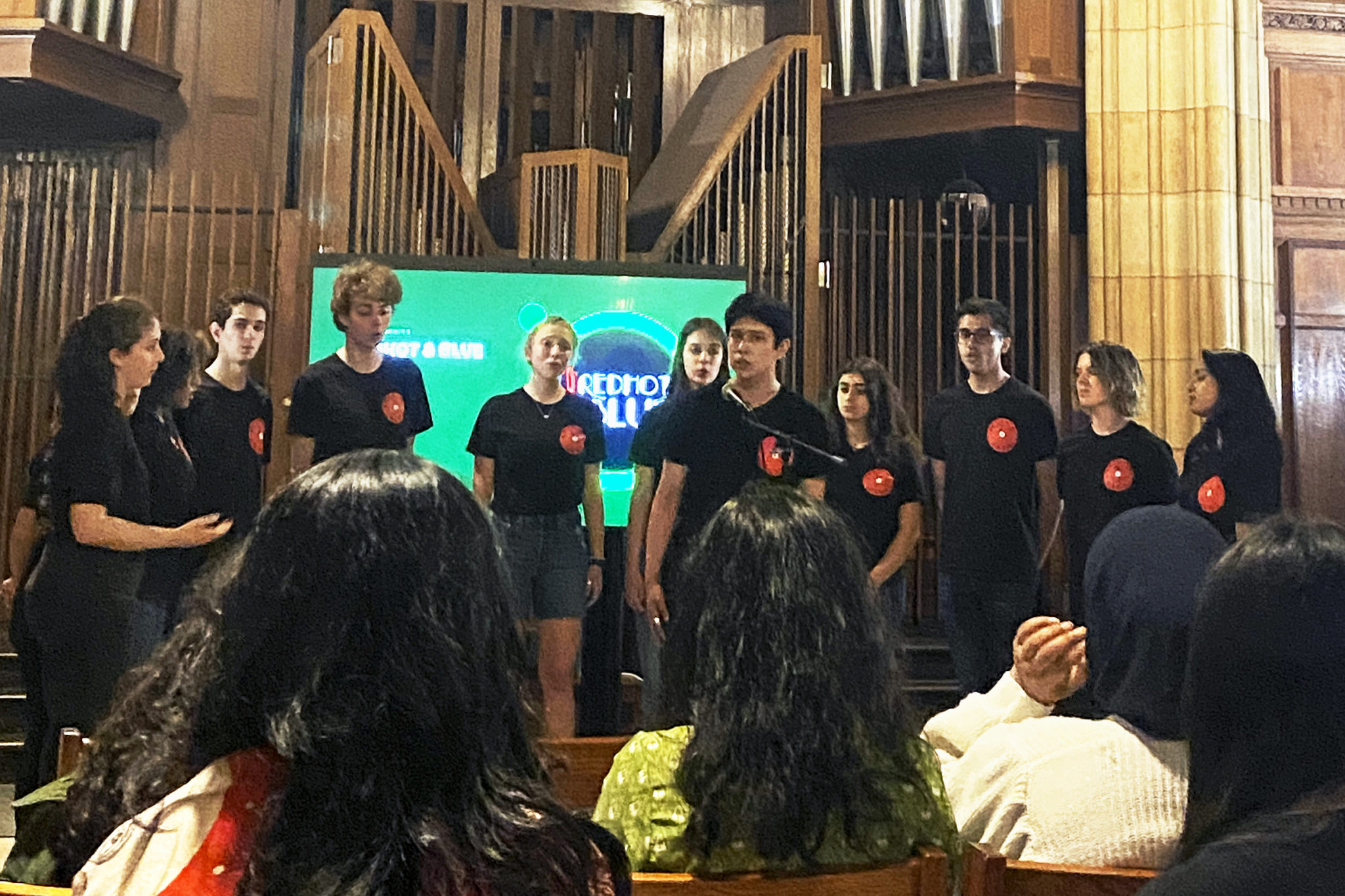Students raise over $3,000 for Pakistan flood relief
The Pakistan Flood Relief banquet organized by Yale’s Amnesty International and other student organizations raised over $3,000 for the Islamic Relief Fund.

Noor Kareem, Contributing Photographer
With 33 million people in Pakistan affected by devastating monsoon floods, student organizations at Yale have rallied together to raise over $3,000 for flood relief.
On Nov. 4, Yale’s Amnesty International collaborated with four student organizations — Yale Muslim Students Association, Yale Bengali Student Association, South Asian Society at Yale and Yalies4Pakistan — to hold a Pakistan Flood Relief Banquet in Dwight Hall for the Islamic Relief Fund.
“Over 6 million people are in need of urgent aid and urgent need lies in total lack of resources,” said Yaseen Hashmi, a representative from Islamic Relief. “A big part of the problem is really sanitation, people can find shelter after displacement but airborne and waterborne diseases are difficult to combat.”
Islamic Relief — an international aid organization that operates in over 30 countries — was one of the first organizations to respond to flood-affected areas in Pakistan. Hashmi emphasized the need for urgent and immediate aid.
The money raised will go towards sending medical supplies, food, shelter kits and other forms of aid through the Islamic Relief Humanitarian Aid Fund. Islamic Relief has already sent aid in the forms of cash grants, hygiene kits, hand washing stations and other forms of sanitary assistance.
According to Layla Hedroug ’25, president of Yale’s Amnesty International, the fundraiser also sought to raise awareness about the climate crisis.
“I think bringing general awareness to Yale about the floods is really important,” Hedroug said. “Climate change disproportionately impacts the global south, despite the majority of emissions being produced in the West. As students we need to recognize our positionality and organize, especially as climate crises are becoming more common.”
The record-breaking flooding in Pakistan was caused by heavy monsoon rains amidst a period of economic crisis. At the height of the flooding, a third of the country was submerged underwater. Authorities estimate that the floodwaters can take up to six months to recede.
The night began with a speech by assistant professor of political science Sarah Khan, the event’s keynote speaker, who highlighted the impacts of climate change in Pakistan and the future of relief following climate crises.
“The scale of devastation is difficult to convey but it’s important for us to understand the extent of the damage,” Khan said. “Starting with human impacts, floods affected 33 million people [in Pakistan]. Loss of life exceeds 1730 individuals, a third of whom are children. The number of displaced people is currently put at 8 million.
Khan went on to detail the complex networks of assistance for climate relief.
She said the current logic of aid-based assistance hinges on the idea that the “scale of floods is so large that Pakistan needs help and cannot do without it.” However, climate change financing for developing countries is typically dispersed as loans. And because Pakistan is facing an economic and debt crisis, Khan said, rebuilding after the floods becomes particularly challenging.
Khan called on international lenders, countries in the Global North and other wealthy nations to take into account this context of “indebtedness” and reform current climate financing systems to move towards other means of assistance instead of loans.
“If we look at countries’ levels of emissions, Pakistan contributes less than 1 percent of global greenhouse emissions,” Khan said. “It is below the world average, and far below the US average. An alternative to situating the logic for aid and assistance in the fact that Pakistan needs help, is to situate in a logic of justice: those who are responsible for the climate crisis that Pakistan and many other countries around the world are facing should pay up.”
Last September, at the UN General Assembly, Pakistan proposed a financial mechanism in which wealthy countries would compensate developing countries disproportionately facing the consequences of emissions they did far less to contribute to. Pakistan is expected to renew such calls at next month’s UN Climate Change Conference, COP27, in Egypt.
The Banquet continued throughout the night with acts by MonstRAASity, Rangeela and the Alley Cats along with a spoken word performance. The fundraiser ended with closing remarks by Sheikh Omer Bajwa, chaplain of Muslim Life at Yale, highlighting the importance of charity.
All proceeds will go directly to Islamic Relief and donations will continue to be accepted at Islamic Relief’s Yale University Student Groups page.







